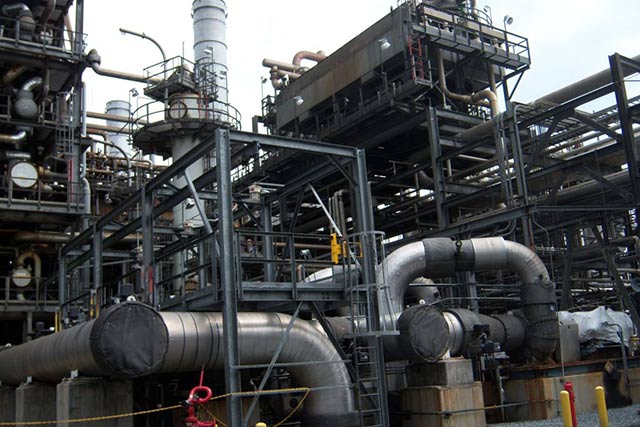The Ministry of Coal is planning a major push for the use of domestic coal through the gasification process to produce chemicals such as methanol and urea fertilizers for industrial purposes.
"We plan to come up with a policy draft and a programme on thermal coal gasification applicable for surface coal mines to produce industrial chemicals by 2023-2024," a senior official in the know of the plan told ETEnergyworld.
Coal gasification is the process of producing syngas, a mixture consisting of carbon monoxide ( CO), hydrogen ( H2), carbon dioxide ( CO2), natural gas (CH4) and water vapor (H2O). During the gasification process, the coal is blown with oxygen and steam while also being heated under high pressure. Oxygen and water molecules oxidize coal and produce syngas during the reaction.
"The work has already started. Talcher Fertilizers Limited, a joint venture company in Odisha is working on coal gasification to produce neem-coated urea. The project has plans to produce approximately 1.26 million metric ton per annum (MMPTA) of neem coated urea using coal as feedstock," said the official.
The coal gasification technology under construction will be used for the production of urea at an estimated cost of more than Rs 11,600 crore. The facility will be operational by 2023-2024. The unit will use approximately 3.3 MTPA coal from the Talcher Mines. There is also provision for blending up to 25% of pet-coke to handle high ash content in coal.
India's largest state-owned mining company, Coal India Limited, also has coal gasification plans and is working on a coal-based methane plant in Kolkata. The company aims to produce 6.76 lakh tons of methanol per year at Dankuni Coal Complex (DCC) of South Eastern Coalfields Ltd (SECL), a subsidiary of the company.
"Coal to methanol is a proven technology and India must tap its large coal reserves to produce methanol as a substitute or drop-in fuel for gasoline and diesel. India has already set itself an ambitious target of 10 per cent reduction in import dependence of oil & gas by 2022 in comparison with 2014-15 levels, which can gel quite well with the use of methanol as an alternate fuel," NITI Aayog had said recently in a policy document titled 'India’s Leapfrog to Methanol Economy'.
The document stated that Methanol can be blended with gasoline and diesel to provide an opportunity to reduce dependence on imported crude oil. High methanol blends offer a significant vehicle efficiency improvement potential of 25% and also provide an opportunity for railway engines to run on methanol and facilitate access to clean cooking fuels.


































